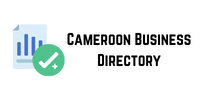Controlled Digital Lending The following blog post was written by freelance writer Caralee Adams about the Internet Archive’s Library Leaders Forum, held on October 23 at San Francisco Public Library.
As enthusiasm grows for making library collections more accessible, the Internet Archive hosted an event to build a community of practice around Controlled Digital Lending (CDL). A diverse group gathered for the 2019 Library Leaders Forum Oct. 23 to share stories and strategies for libraries to expand their reach by lending out digital books based on their physical collections.
Why is this important?
Chris Freeland, Director of Open Libraries
“At the Internet Archive, we have a strong belief recent mobile phone number data that everyone deserves to learn. We want to offer up the greatest digital library the Internet has ever seen to the world for free,” said Chris Freeland, Director of the Internet Archives’ Open Libraries program. “We think that everyone, regardless of where they live, should have ready access to a great library. More importantly, we think it should be available on phones and mobile devices that people turn to today. We want to make sure they have access to vetted, trusted information that’s held in libraries.”
The mantra of CDL: “Own one, loan one.” The idea is that a library can make a choice of lending either a physical copy or a digital version of a book.
The Internet Archive has been doing CDL since 2011, beginning create content that converts with the Boston Public Library. Now two dozen other libraries of all sizes in the U.S. and Canada have embraced the model. Librarians from some of those institutions spoke about their passion for the practice at the forum.
The meeting provided an overview of the legal issues, policy considerations, and examples of CDL in action. The appeal to library leaders gathered was to endorse CDL, join Open Libraries, donate books to the Internet Archive for scanning, and volunteer to help with a new serials project.
Helping libraries see what’s possible
>>>>>Library Leaders Forum attendees at San Francisco Public Library
Michael Lambert, City Librarian at the San Francisco search engine optimization mails Public Library, which hosted the event, shared his institution’s experience as an early partner with the Internet Archive on Open Libraries and CDL. Beginning with city government documents and historical materials, SFPL created an entire scanning department. To date, the library has digitized 13,000 books and documents with the Internet Archive, which have received over 7.5 million views. Since November 2018, SFPL has donated 30,000 copyrighted books to the Internet Archive as part of its community distribution program.
“Having this alternative virtual lending site as an option has Controlled Digital Lending been great,” Lambert said. ”Librarians have been able to confidently weed excess. Outdated materials from our collection. Secure in knowledge that the books will not disappear. But rather have a new life where people around the world can read and research the materials that SFPL has meticulously collected over the decades.”
The Internet Archive embodies library values: persistence. Comprehensiveness and accessibility. Said Lambert. “The Archive has become a crucial part of the broad library information eco-system.” He said. “They have provided examples that have challenged traditional libraries. The Internet Archive helps other libraries see what’s possible.”
Brewster Kahle Internet Archive
What Internet Archive Founder Brewster Kahle hopes is possible is digitization. Will allow more online sources to be linked to books. Providing people trust information.
“If Wikipedia is the encyclopedia of the Internet. We are trying to build the library of the Internet.” Kahle explained at the forum. “Let’s make it really easy for people to go deeper.”
So far, the Internet Archive has turned 122,000 references on Wikipedia to digitized book links through its online library. Still, a century of books is missing after 1923 because. Of copyright laws. Kahle called on libraries to help fill that gap.</p>
As part of that strategy, the Internet Archive is trying to institutionalize CDL, a practice that has been successfully working in a handful of libraries for eight years with no negative pushb
ack. Yet, it has not been widely embraced. Kahle appealed to libraries to endorse CDL and donate books for scanning to address the larger goal of universal access to knowledge.
Framing the approach
ion.
Lila Bailey of the Internet Archive moderated a conversation with Kyle Courtney. Copyright Advisor at Harvard University. David Hansen, Associate University Librarian at Duke University. and Michelle Wu, Associate Dean for Library Services and Professor of Law at the Georgetown Law Library in Washington, D.C.
They have written a paper spelling out how libraries
can practice CDL within the confines the fair use doctrine in current copyright law. Copyright law established in 1976 and dating back to 1950 does not reflect the digital reality today and it should allow flexibility for libraries to lend out one book at a time – no matter what the format – digital or print, they maintain.

